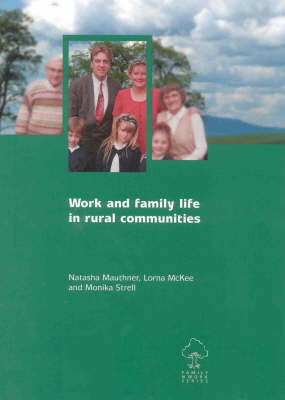Family and Work
1 total work
Work and Family Life in Rural Communities
by Natasha Mauthner, Lorna McKee, and Monika Strell
Published 6 February 2002
Recent family policy debates have explored the challenge of balancing the demands of paid work with domestic and family commitments. Drawing on detailed interviews with mothers and fathers from different social, economic and occupational backgrounds, this study explores these concerns from a rural perspective, and investigates how families living in rural areas are combining paid work with raising children. The study was based in and around three diverse rural communities in Scotland and northern England. Taking part were 52 dual-parent households with at least one earner and with one child aged 12 or under. The research explored parents' views of the countryside as a place to raise their family, and found that parents described their rural community as providing an ideal physical, cultural and structural environment. The nature and structure of their working life was also examined. A degree of flexibility and adaptation was found, as families combined breadwinning and caring in different ways that evolved across the life cycle. The parents placed a high value on parenthood, and many had adjusted their paid work to meet the demands of childcare and childrearing.
The research found that although parents living in the countryside faced problems specific to country areas (for example, lack of activities for teenage children, restricted employment opportunities, limited public transport), for many, the advantages of living in a rural area (access to nature, freedom and safety for children, community neighbourliness, support and trust, high quality schools and health services) outweighed the limitations. The report concludes with an exploration of the policy implications of these findings.
The research found that although parents living in the countryside faced problems specific to country areas (for example, lack of activities for teenage children, restricted employment opportunities, limited public transport), for many, the advantages of living in a rural area (access to nature, freedom and safety for children, community neighbourliness, support and trust, high quality schools and health services) outweighed the limitations. The report concludes with an exploration of the policy implications of these findings.
